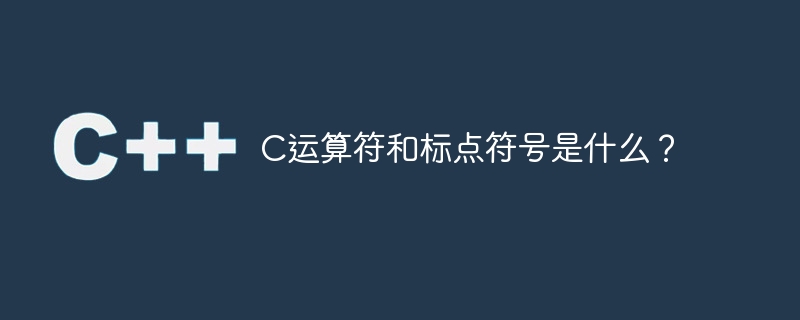Home >Backend Development >C++ >What are C operators and punctuation?
What are C operators and punctuation?
- WBOYWBOYWBOYWBOYWBOYWBOYWBOYWBOYWBOYWBOYWBOYWBOYWBforward
- 2023-09-13 23:21:021532browse

Operators are used to describe operations that apply to one or more objects. It makes sense mainly in expressions, but also in declarations. It is usually a short sequence using non-alphanumeric characters.
A punctuation mark is used to separate or terminate a list of elements.
The operators and punctuation marks of C language are as follows −
... && -= >= ~ + ; ]
<<= &= -> >> % , < ^
>>= *= /= ^= & - = {
!= ++ << |= ( . > |
%= += <= || ) / ? }
## -- == ! * : [ #Please note that some sequences are used as operators and punctuation marks, such as *, =, :, # and ,.
Some punctuation marks must be used in pairs, such as (), [], {}.
When parsing the input text, the compiler tries to build the longest sequence possible as a token, so when parsing a b, the compiler will recognize the following:
a ++ ++ + b which is not a valid construct
The compiler does not The following will be considered −
a ++ + ++ b which may be valid
The above is the detailed content of What are C operators and punctuation?. For more information, please follow other related articles on the PHP Chinese website!
Related articles
See more- C++ compilation error: A header file is referenced multiple times, how to solve it?
- C++ compilation error: wrong function parameters, how to fix it?
- C++ error: The constructor must be declared in the public area, how to deal with it?
- Process management and thread synchronization in C++
- How to deal with data splitting problems in C++ development

